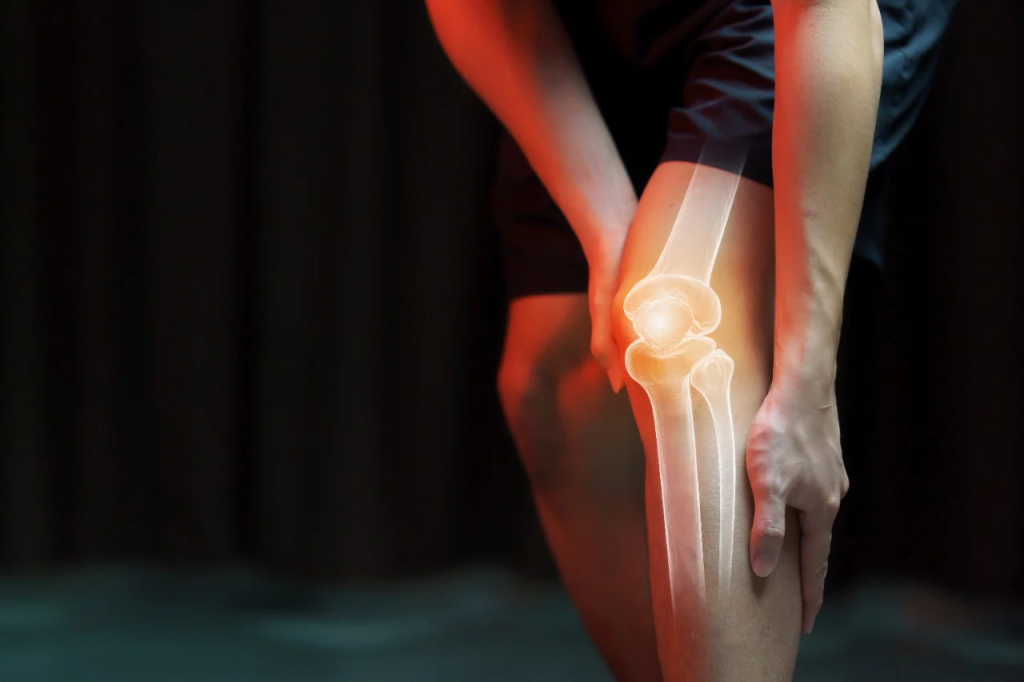We all know that walking is one of the simplest and most accessible forms of exercise. But did you know that this low-impact activity has a treasure trove of health benefits? Walking isn’t just about moving from point A to point B—it’s a powerhouse that can work wonders for your body and mind. In this article, we’ll explore seven surprising health benefits of walking that will leave you amazed and motivated to step outside and take a stroll today.

What Can Happen After 30 Days of Walking?
| Day Range | Physical and Mental Changes |
|---|---|
| Days 1-7 | Initial Boost in Mood & Energy: Within the first week, you may start to feel more energized and experience a slight improvement in mood due to the release of endorphins. Your body will adjust to the daily routine, and you might notice a decrease in stress levels. |
| Days 8-14 | Improved Sleep Quality: As you continue walking, your sleep quality may improve. You’ll fall asleep faster and enjoy more restful sleep due to reduced anxiety and better regulation of your circadian rhythm. |
| Days 15-21 | Better Cardiovascular Health: By the third week, you may notice increased stamina and endurance. Your heart will become stronger as walking improves circulation, and your resting heart rate may decrease. |
| Days 22-28 | Visible Weight Loss & Toned Muscles: Consistent walking, especially brisk walks, can help with weight loss. You may start to see a slight reduction in body fat, particularly in your abdomen and legs. Your muscles, especially in the legs and glutes, will begin to feel firmer and more toned. |
| Day 30 | Increased Mental Clarity & Creativity: After 30 days, walking regularly will have a noticeable impact on your cognitive function. You might experience improved problem-solving skills, better concentration, and enhanced creativity. Additionally, you may feel a deeper sense of well-being and mental clarity. |
1. Boosts Mental Health and Reduces Stress

Walking can do more than just improve your physical health—it’s a powerful tool for enhancing mental well-being. Studies show that regular walking, especially in nature, can significantly reduce symptoms of anxiety and depression. The rhythmic movement of walking stimulates the release of endorphins—our brain’s natural mood elevators. Furthermore, walking in natural environments, such as parks or forests, offers the added benefit of connecting with nature, which has been proven to reduce stress and promote a sense of calm.
Fun Fact: Did you know that walking for just 30 minutes a day can help reduce cortisol levels, the hormone linked to stress? It’s true!
2. Improves Cardiovascular Health

When it comes to heart health, walking is a true champion. It’s one of the best low-impact exercises that can help you maintain or improve your cardiovascular system. Walking regularly can lower your risk of developing heart disease by improving circulation, lowering blood pressure, and reducing cholesterol levels. In fact, research has shown that walking for just 30 minutes a day can reduce your risk of heart attack and stroke by up to 35%.
Interesting Fact: A study by Harvard Medical School revealed that walking briskly for 30 minutes daily can extend your life by up to 3.5 years.
3. Aids in Weight Management and Burns Calories

If you’re aiming to lose weight or maintain a healthy weight, walking can be your secret weapon. This low-impact exercise helps burn calories without putting excessive strain on your joints, making it ideal for people of all ages and fitness levels. The number of calories burned depends on your walking speed, but even a leisurely walk can contribute significantly to weight management when combined with a healthy diet.
Myth Busting: You don’t need to run or engage in high-intensity exercises to lose weight. Walking at a brisk pace can be just as effective, especially when done regularly.
4. Strengthens Bones and Joints

Walking can have a tremendous impact on your skeletal health. It’s a weight-bearing activity, which means it helps stimulate bone growth and strengthens your bones over time. This can lower your risk of osteoporosis and fractures as you age. Moreover, walking is an excellent way to keep your joints flexible, especially the knees, hips, and lower back, which are prone to stiffness and discomfort as we age.
Did You Know? Regular walking has been shown to increase bone density and can even improve balance, reducing the risk of falls in older adults.
5. Enhances Immune Function

Taking a walk regularly can give your immune system a boost. Studies have found that moderate physical activity, like walking, enhances the production of immune cells that help fight off infections. Walking also improves circulation, which allows immune cells to travel more efficiently throughout the body. Whether it’s fighting off a cold or keeping chronic conditions at bay, a simple walk can be your body’s first line of defense.
Fun Fact: One study found that people who walk at least 30 minutes a day have 43% fewer sick days than those who don’t engage in regular physical activity.
6. Improves Sleep Quality

If you struggle with sleepless nights, walking might just be the remedy you need. Regular physical activity, including walking, has been linked to better sleep quality and a more restful night’s sleep. Walking increases the amount of deep sleep you get, which is crucial for overall health. A brisk walk in the late afternoon or early evening can help regulate your circadian rhythm and make it easier to fall asleep at night.
Myth Busting: While intense exercise late at night can sometimes make it harder to sleep, a gentle walk in the evening can actually improve sleep quality.
7. Enhances Creativity and Cognitive Function
Walking isn’t just great for the body—it’s also fantastic for your mind. Research has shown that walking, particularly when done outdoors, stimulates creative thinking. A study from Stanford University revealed that people who walked on a treadmill performed significantly better on creative tasks compared to those who were seated. Whether you’re brainstorming for work, writing a novel, or simply trying to solve a problem, a walk can help spark those creative juices.
Did You Know? Walking is one of the simplest ways to clear your mind, allowing new ideas to flow more freely.
Final Thoughts: Walking—The Underrated Superpower
As we’ve seen, walking is far from just a mundane activity; it’s an accessible, cost-effective exercise with an array of health benefits. Whether it’s boosting your mental health, strengthening your bones, or improving your creativity, walking has the power to transform your life in ways you might never have imagined. So, the next time you’re feeling stressed, sluggish, or in need of inspiration, take a step outside and let the magic of walking work its wonders.
Start small, take it one step at a time, and soon you’ll experience the incredible benefits that come with the secret power of walking.
Frequently Asked Questions (FAQs)
How many steps should I walk daily for optimal health?
The general recommendation is to aim for 10,000 steps per day, which is equivalent to about 5 miles or 8 kilometers. However, if you’re just starting, it’s perfectly fine to begin with fewer steps and gradually increase your goal over time.
Is walking enough to lose weight?
Yes, walking can be an effective tool for weight loss, especially when combined with a balanced diet. A brisk 30-minute walk can burn between 150-200 calories. While it might not be as intense as running or weightlifting, it is a sustainable and low-impact activity that can support long-term weight management.
How fast should I walk to see health benefits?
Walking at a brisk pace of about 3-4 miles per hour (5-6 km/h) is ideal for boosting cardiovascular health and calorie burn. If you’re walking for relaxation, a slower pace is also beneficial for reducing stress and improving mental clarity.
Can walking improve my sleep?
Yes, walking can help improve sleep quality by promoting relaxation and reducing stress. A brisk walk earlier in the day or in the evening can help regulate your circadian rhythm and make it easier to fall asleep at night.
How long do I need to walk to see results?
You may begin to notice benefits, such as improved mood or reduced stress, within just a few days to a week of walking. For long-term benefits like weight loss or cardiovascular improvements, aim to maintain a regular walking routine for at least 4 to 6 weeks.
Is walking safe for seniors or people with joint issues?
Absolutely! Walking is a low-impact exercise that’s gentle on the joints, making it ideal for seniors or those with arthritis and other joint issues. It can help maintain mobility, flexibility, and bone health without putting excess strain on the body.
Can walking improve my heart health?
Yes, walking regularly is one of the best ways to keep your heart healthy. It helps lower blood pressure, reduce cholesterol, and improve circulation, all of which contribute to a lower risk of heart disease and stroke.






Good
Awesome